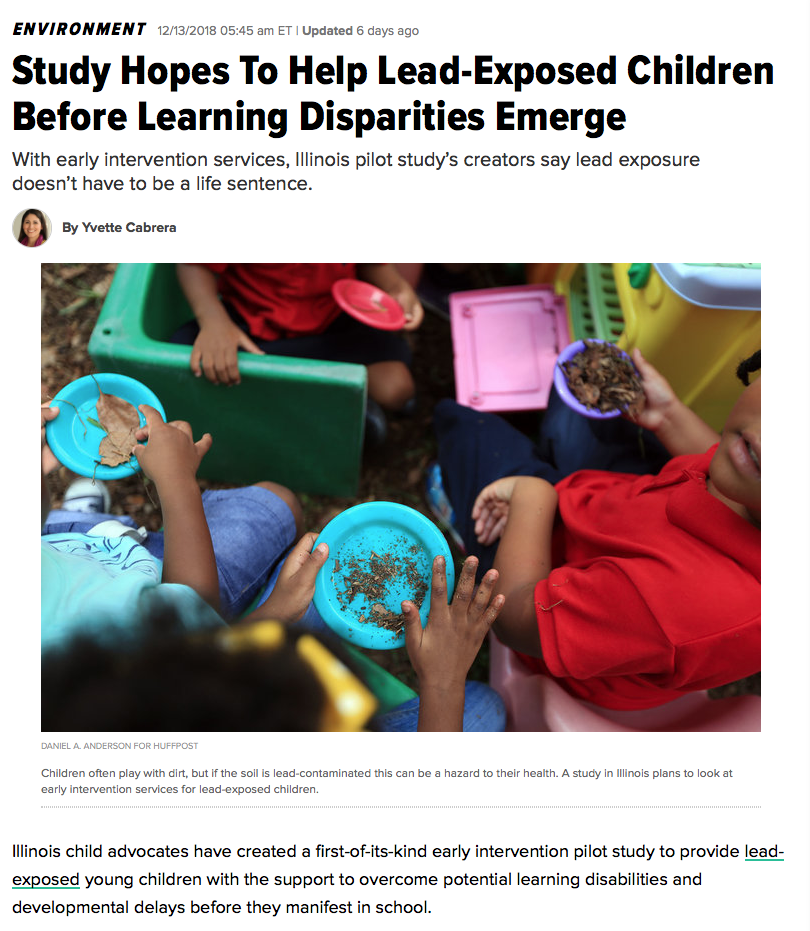Early Intervention Pilot Study for Lead-Exposed Kids
Last week, Huffington Post featured Legal Council's first-of-its-kind Early Intervention (EI) pilot for infants and toddlers. The pilot provides lead-exposed kids with the support they need to overcome potential learning disabilities and developmental delays before they go to school.
As of right now there are only 18 states that offer automatic eligibility for EI to lead-exposed kids "despite the recommendation by a group of experts in a 2015 Centers for Disease Control and Prevention report that lead-exposed children should have streamlined access to assessment, intervention and special education services." Illinois is not yet one of those states. Out of these 18 states, none offer help regarding how services should be provided to these kids. Some states only offer support once the child already shows signs of delays.
Right now EI programs operate under a "deficit-driven model". This means children's delays are getting addressed after they have manifested. If a kid were automatically qualified for EI based on lead exposure then service providers could work with families to better support optimal development and either keep kids on track, or help them catch up, before they enter K-12.
Dr. Nicole Hamp, a third-year pediatric resident at our medical-legal partnership site Comer Children’s Hospital, is a longtime supporter and partner with Legal Council's children and families program. In the article, Hamp says "children who have been exposed to lead have lower IQ levels, difficulty with attention and language processing, and behavioral and emotional problems — issues that typically emerge only once a child starts school."
The pilot training teaches parents that their child may not show any obvious symptoms, especially with low levels of exposure. This helps parents understand that even if their child shows no obvious symptoms, accessing EI can make a difference later on in the child's life.
Studies show lead-exposed children have a increased need for special education services, a greater chance of having reading disabilities, more missed school days and high school dropout rates. Even though EI services have proven to be effective and cost less than special education, funding remains a problem. Our advocates intend to continue pushing for greater funding, increased access, and awareness of EI services for Illinois kids and families.
Keep up with news about our lead pilot on Facebook and Twitter.



